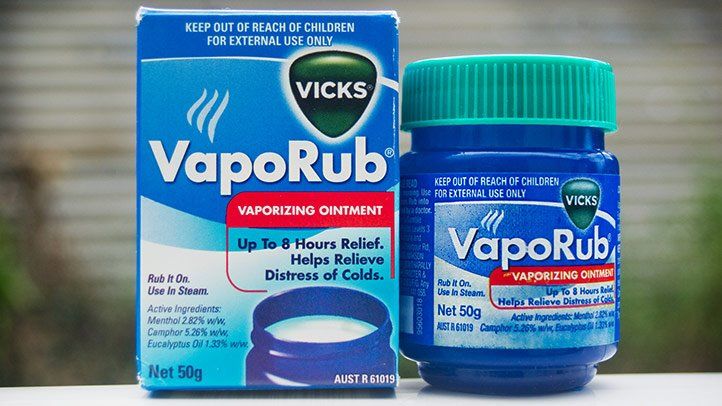Using Honey and Onions as Natural Cough Remedies
Honey and onions are two traditional home cure ingredients that can be highly effective at relieving coughs naturally. Both foods have antiviral, antibacterial, and anti-inflammatory properties ideal for soothing sore throats and calming coughs.
Here's a look at how honey and onions work to combat coughs, evidence behind their abilities, the most effective preparation methods, and dosage recommendations. We'll also explore reasons to choose them over conventional cough medicine options.
How Can Honey Soothe a Cough?
Raw honey has a viscosity that naturally coats and soothes an irritated throat. It also fights infection with the following properties:
- Antibacterial effects against cough-causing bacteria
- Antifungal and antiviral qualities to boost immunity
- Anti-inflammatory action to ease swelling and discomfort
- High antioxidant content to promote healing
Research confirms honey often outperforms over-the-counter cough suppressants. Babies over age 1, children, and adults can all benefit from proper honey dosing.
How Do Onions Help Coughs?
Similar to honey, raw onions have antibacterial and anti-inflammatory components. They contain compounds like quercetin and allicin that loosen and thin out thick mucus in the airways that triggers coughing.
These beneficial phytochemicals also clear nasal congestion and may boost glutathione production to support immunity. Onions make an excellent pairing with honey for maximum cough relief potential.
Honey and Onion Syrup Recipe
One of the most effective ways to harness the combined power of honey and onions for coughs is making an herbal syrup. This remedy coats and soothes the throat while fighting infection and thinning mucus:
Ingredients
- 1 large yellow onion, chopped
- 1 cup honey
- 1 cup water
Directions
- Combine chopped onion with water in a saucepan
- Bring to a boil, then let simmer 10 minutes to infuse the onion into the liquid
- Remove from heat and strain out the onion chunks
- Stir in honey while liquid is still warm until thoroughly mixed
- Refrigerate in an airtight container up to one month
Take 1-2 teaspoons as needed for coughs, or mix the honey-onion syrup with warm water or tea to drink. The powerful combination provides antibiotic, antiviral, and anti-inflammatory relief.
Other Ways to Use Honey and Onions
Onion and Honey Poultice
Applying raw onion and honey directly to your throat in a poultice maximizes the anti-inflammatory effects.
Chop or grate half an onion and stir together with 2 tablespoons raw honey until it reaches a paste-like consistency. Spread a thick layer of the mixture onto a soft cloth and apply to your neck and throat for 15-20 minutes. Repeat this 2-3 times daily to reduce swelling and irritation.
Hot Onion and Honey Tea
Sipping hot tea featuring honey and onions delivers powerful compounds directly to irritated tissues lining your throat and airways. The heat further reduces swelling and discomfort.
Simply brew a cup of black or herbal tea and stir in 2 teaspoons each minced raw onions and honey. The tangy, earthy flavor marries well with ginger, lemon, or mint tea varieties. Have a few cups a day to maximize the cough-fighting antioxidant dose.
Onion and Honey Soup Broth
Warm broth made from onions and honey supports the entire cough relief journey by:
- Thinning out mucus
- Coating and soothing the throat
- Hydrating tissues
- Delivering nutrients to heal damage
Gently cook down chopped onions in broth with garlic, herbs, and spices until soft. Remove from heat and mix in 1-2 tablespoons of honey until dissolved before drinking. Sip this mineral-rich concoction throughout the day to speed healing.
Dosage Recommendations
Honey Cough Guidelines
When using honey to calm coughs, follow these age-based dosage guidelines:
- Over age 1: Take up to 2 teaspoons (10mL) pure honey up to 3 times daily. More than this risks causing an upset stomach.
- Ages 2-5: Up to 1 teaspoon (5mL) honey 4 times daily is a safe and effective amount.
- Age 6 and older: Adults can take 1-2 tablespoons (15-30mL) pure honey every few hours for cough relief.
Onion Recommendations
No formal published guidelines exist for using onion to treat coughs. But the following daily amounts appear both safe and beneficial:
- Ages 4-6: 1-3 teaspoons (5-15mL) chopped raw onion
- Older children/teens: 1 tablespoon (15mL) chopped onion
- Adults: Up to 1/4 cup (60mL) chopped raw onion
Maximize benefits by pairing onion with equal parts honey in remedies like cough syrup, broths, teas, or poultices.
Precautions With Honey and Onion Remedies
When used appropriately, raw honey and onions make very safe, effective home cough remedies. But keep these precautions in mind:
- Never give honey to infants under 1 year due to botulism risk.
- Introduce new foods slowly to watch for rare allergic reactions.
- Discontinue if nausea, cramps, or worsening symptoms occur.
- Tell your doctor about any supplements or home remedies you're using.
- See your physician if symptoms last more than one week or make breathing difficult.
Assuming no complications or contraindications, both onions and honey can be very valuable additions to your at-home cough relief arsenal!
FAQs
Can you give honey to babies under 1 year for coughs?
No, never give honey to infants under 1 year due to the risk of infant botulism poisoning. Honey is safe for older babies/toddlers over 12 months when given in small doses.
How much onion should you use in cough remedies?
Aim for 1-3 teaspoons chopped onion for young kids, 1 tablespoon for older children/teens, and up to 1/4 cup for adults per day. Pair with equal honey amounts for best results.
How often can you take honey and onion cough mixtures?
Most honey-onion cough remedies can be used up to 3 times daily or more. Sip syrups, teas, or broths throughout the day. Apply pastes or poultices to your throat 2-3 times daily.
When should you see a doctor for coughs?
See your doctor if a cough lasts more than a week, produces discolored mucus, makes breathing difficult, or is accompanied by fever over 102°F. Get immediate help for severe shortness of breath or wheezing.
Disclaimer: This article is for informational purposes only and does not constitute medical advice. Always consult with a healthcare professional before starting any new treatment regimen.
Related Coverage
Soothe swollen, inflamed nasal and sinus passages using anti-inflammatory ginger, peppermint, licorice, chamomile teas. Clear your head naturally....
Excess phlegm and mucus can be caused by allergies, infections, smoking, GERD, and other issues. A combination of home remedies and medical treatment can provide relief....
Explore the fascinating world of record-breaking boogers and the individuals who hunt for the largest nasal mucus specimens. Discover the science behind boogers and celebrate the absurdity of this niche pursuit....
Get the exact Relenza dosage for flu treatment and prevention, plus form, strength, inhaler use, safety tips, and dosing schedule....
DayQuil can temporarily relieve a sore throat caused by a cold or flu. Its combination of pain relief, cough suppression, and decongestion provides short-term symptom relief....
Ear pain has many causes including infections, swimmer's ear, TMJ and more. Learn the symptoms of ear infections and how to treat and prevent them properly....
Nasal mucus contains antibodies, moisturizes tissues, and traps pathogens - learn more about this slimy respiratory defense system with insights from mucus photos....
Vicks Flu Therapy tea containing honey, zinc and echinacea is a natural remedy that can help prevent and treat cold and flu symptoms....
Discover the debate surrounding the use of Vicks VapoRub on cold sores, as researchers raise concerns about its ingredients and potential side effects....
Learn whether you can take NyQuil 4 hours after Sudafed decongestant based on differences, side effect risks, dosing guidelines and what to do if interactions occur....








